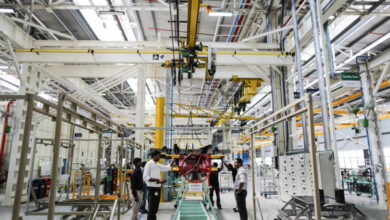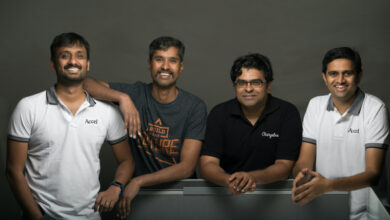DuPont and VCs see lithium mining as a critical investment for the electric future – TechCrunch

[ad_1]
“Mining” has become synonymous with crypto the past few years in the tech industry, what with Bitcoin piercing the $50,000 barrier and GPUs and ASICs worldwide scrambling to hash functions in a bid for distributed crypto manna. That excitement belies an increasingly energetic push though to bring VC dollars and entrepreneurial acumen back to Mining 1.0 — actual meatspace resource extraction.
One of the key target resources is lithium, a critical component for smartphones, electric vehicle batteries and nearly every other electric tool of modern convenience and industrial import. China through its mining companies and battery manufacturers is currently in the lead, thanks to a years-long push to control both the supply of lithium and develop massive new manufacturing capacity to meet global demand. As tensions rise between China and the United States however, companies are racing to find alternative supplies as the world transitions to more electric-based infrastructure systems.
That’s one reason why DuPont is making a push to prove out its extraction technologies.
The water filtration and purification service provider DuPont Water Solutions has teamed up with Vulcan Energy Resources, a developer of lithium mining and renewable energy projects, to test a new process for direct lithium extraction.
Current processes for mining lithium are bad for the environment (to put it mildly), involving heavy use of toxic chemicals and increasingly scarce water resources. This new joint project, which is being developed in the Upper Rhine Valley of Germany, would tap DuPont’s direct lithium extraction products and filtration expertise to mine and refine lithium in a more environmentally friendly way, the company said.
Dr. Francis Wedin, managing director of Vulcan, said in a statement that “DuPont’s diverse set of products, which can be manufactured at scale, are likely to be well-suited to sustainably extract the lithium from the brine.”
DuPont is hoping to push the technology out across the mining industry and make its portfolio of sorbents, nanofiltration technologies, reverse osmosis filters, ion exchange resins, ultrafiltration and close-circuit reverse osmosis products available to a wider group of customers.
A push by DuPont to become more involved in the lithium-mining business will heighten competition for startups like Lilac Solutions, which has developed its own technology for lithium extraction. The company has partnered with an Australian company, Controlled Thermal Resources, to develop lithium brine deposits in the Salton Sea, which is among California’s most blighted environmental disasters.
Last year, the Oakland-based startup announced a $20 million investment led by Breakthrough Energy Ventures (those folks are everywhere), the MIT-affiliated investment firm The Engine and early Uber investor Chris Sacca’s relatively new climate-focused fund, Lowercarbon Capital.
Outside Lilac, there’s been a stream of VC dollars flowing into the (non-crypto) mining business as software helps extraction companies operate more efficiently. Notable investments include high-tech prospectors like KoBold Minerals (another Breakthrough Energy Ventures portfolio company), which uses big data and machine learning to help pick better targets for mines, and Lunasonde, which prospects from space using satellites.
Other solutions to the lithium problem are attracting investor attention, too. For Jeff Chamberlain, the founder and chief executive of the battery technology investment firm Volta Energy Technologies, an alternative may be found in “urban mining,” or the recycling of used lithium-ion batteries. For decades, lead-acid batteries have been recycled for their component materials, and Chamberlain expects that the lithium-ion supply chain will evolve to support more efficient reuse of existing materials as well.
There’s a slew of companies trying to prove Chamberlain right. They include businesses like Li-Cycle, which yesterday announced that it would go public through a special purpose acquisition company (SPAC) in a deal that would value the company at $1.67 billion.
Meanwhile, privately-held and venture-backed startups are developing other recycling solutions. Battery Resourcers, a spinout from Massachusetts’ Worcester Polytechnic Institute, is focused on making cathode power converters from recycled scrap. Singapore-based Green Li-ion is another company that’s opening a recycling plant for lithium-ion battery cathodes, and Northvolt, a Swedish battery startup that was founded by former Tesla executives in 2016, already has an experimental recycling plant up and running.
Finally there’s J.B. Straubel’s Nevada-based startup Redwood Materials, which was one of the first companies to receive funding from Amazon through its Climate Pledge Fund.
“Ultimately we won’t have to extract lithium out of rock. We can extract lithium from pools and using urban mining,” said Chamberlain. Call it Mining 1.0, Version 2 — but it’s just the kind of investment our world needs if we are going to secure a better climate future.
[ad_2]
Source link






